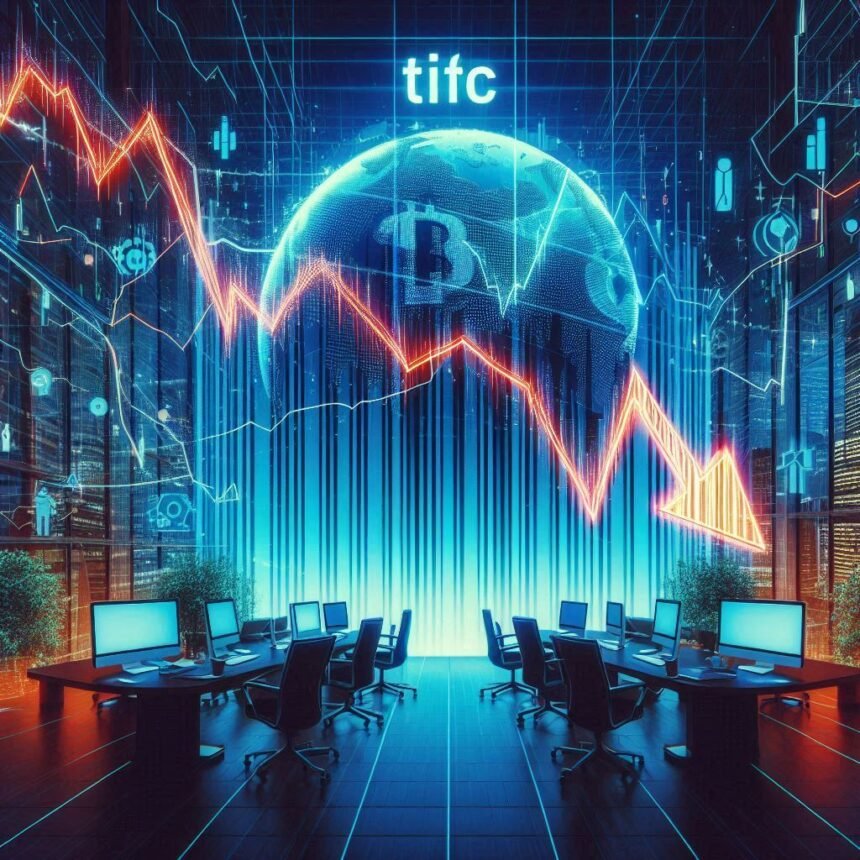Big tech stocks down dramatically as market sentiment sours. Once high-flying tech titans like Apple, Amazon, and Google have experienced a precipitous decline, eroding billions in market capitalization. The broader tech sector sell-off has been exacerbated by growing concerns over a potential US recession, dampening investor enthusiasm for high-growth, high-valuation companies.
Aug 5 (Reuters) – Major tech companies, including Apple (AAPL.O), Tesla (TSLA.O), Alphabet (GOOGL.O), and Amazon (AMZN.O), suffered significant losses on Monday as U.S. recession fears combined with Berkshire Hathaway’s (BRKa.N) sale of half of its stake in Apple, leading to a sharp market downturn. The widespread sell-off reflects growing concerns about the economic outlook and the sustainability of the recent rally in tech stocks, fueled largely by optimism around artificial intelligence (AI).
Market Overview
The broader market was hit hard, with tech heavyweights bearing the brunt of the sell-off. Apple saw its shares drop by over 4%, a move that was echoed by other major players in the sector. Tesla, Alphabet, Amazon, Nvidia (NVDA.O), Microsoft (MSFT.O), and Meta Platforms (META.O) all saw declines ranging from 3% to 7%. These seven companies, often referred to as the Magnificent Seven, collectively lost approximately $800 billion in stock market value during the session, according to LSEG data.
The sharp drop in tech stocks comes amid a broader retreat on Wall Street, driven by a mix of economic fears and sector-specific concerns. The PHLX Semiconductor Index (.SOX) also fell sharply, declining 2.6%, and extending its losses over the past three sessions to 14%.
Impact of Berkshire Hathaway’s Sale
The news that Warren Buffett’s Berkshire Hathaway had sold half of its stake in Apple, the conglomerate’s top holding, added fuel to the market’s anxiety. This move by one of the world’s most respected investors was seen as a potential warning sign about the outlook for the tech industry, particularly for companies heavily invested in AI.
Berkshire Hathaway’s decision to reduce its stake in Apple comes at a time when the tech sector is grappling with mounting challenges. The company’s action, coupled with broader market conditions, has prompted many investors to reassess the sustainability of the recent tech rally.
Recession Fears and Economic Indicators
The sell-off also follows a weak U.S. payrolls report released last Friday, which exacerbated fears of an impending recession. The report showed that job growth in the U.S. was slowing, prompting investors to flock to safer assets and increasing speculation that the Federal Reserve might need to cut interest rates sooner than anticipated to stave off a recession.
The combination of disappointing economic data and mounting recession fears has led to a broader reevaluation of risk in the markets. Investors are increasingly concerned that the U.S. economy may be heading toward a downturn, which could have significant implications for corporate earnings and stock valuations.
Challenges in the AI Sector
In addition to economic concerns, the tech sector is facing its own set of challenges, particularly related to AI. While AI has been a major driver of the recent rally in tech stocks, there are growing worries about the costs associated with building AI-optimized data centers. These concerns have been compounded by reports of design flaws and production delays in Nvidia’s new AI processor, as reported by The Information and the Financial Times.
Nvidia, which has been a key player in the AI boom, saw its shares tumble 7% on Monday. The company’s setbacks are a reminder that the race to build AI infrastructure is fraught with risks and that the payoff from these investments may take longer to materialize than investors had initially hoped.
Market Commentary
Dan Coatsworth, an investment analyst at AJ Bell, commented on the sharp decline in tech stocks, noting that expectations for the Magnificent Seven had become excessively high. “Their success has made them untouchable in the eyes of investors, and when they fall short of greatness, out come the knives,” Coatsworth said. This sentiment reflects the growing realization that even the most successful companies are not immune to broader economic and market forces.
The tech sector, which had been a key driver of the stock market’s gains over the past year, is now facing significant headwinds. The combination of economic uncertainty, high expectations, and sector-specific challenges has created a perfect storm that is now weighing heavily on these stocks.

Broader Market Repercussions
The sell-off in tech stocks has broader implications for the overall market. Given the outsized influence of the Magnificent Seven on major indices like the S&P 500 and the Nasdaq, their declines have contributed to a more widespread retreat in the markets. The drop in tech stocks also reflects a shift in investor sentiment, as market participants become more cautious in the face of rising risks.
The broader market is also being impacted by concerns about corporate earnings. With recession fears mounting, there is growing uncertainty about the future trajectory of corporate profits, particularly for companies that are heavily dependent on consumer spending and economic growth.
Looking Ahead: What’s Next for the Tech Sector?
As the market digests the implications of the recent sell-off, there are several key factors that investors will be watching closely. First and foremost is the ongoing economic data, which will provide further insight into the health of the U.S. economy and the likelihood of a recession. Investors will also be keeping a close eye on the Federal Reserve’s actions, as any moves to cut interest rates could have significant implications for both the economy and the stock market.
In the tech sector, the focus will remain on AI and the challenges associated with building out the necessary infrastructure. While the potential for AI to revolutionize industries remains high, the costs and risks associated with this transformation are becoming increasingly apparent. Companies like Nvidia, which are at the forefront of AI development, will be under scrutiny as they navigate these challenges.
At the same time, the broader tech sector will need to contend with the high expectations that have been placed on it. The recent sell-off is a reminder that even the most successful companies can face setbacks and that the market’s enthusiasm for AI may need to be tempered by a more realistic assessment of the challenges ahead.
A Turning Point for Tech Stocks?
The events of August 5 mark a potential turning point for the tech sector and the broader stock market. As investors reassess their expectations and grapple with a more uncertain economic outlook, the days of unbridled enthusiasm for tech stocks may be coming to an end. While the long-term potential of AI and other technologies remains strong, the road ahead is likely to be more challenging and uncertain than many had anticipated.
For now, the focus will be on navigating the immediate risks, including the potential for a recession and the challenges associated with building out AI infrastructure. Investors will need to remain vigilant and adaptable as they navigate these uncertain waters, with an eye on both the risks and the opportunities that lie ahead.
As the markets continue to react to these developments, the coming weeks and months will be crucial in determining the future direction of tech stocks and the broader market. Whether this marks the beginning of a broader correction or a temporary setback in a longer-term rally remains to be seen.
For more on how these developments are impacting the markets, you can follow the latest updates on Apple, Tesla, Alphabet, Amazon, Nvidia, Microsoft, and Meta Platforms at Reuters.







